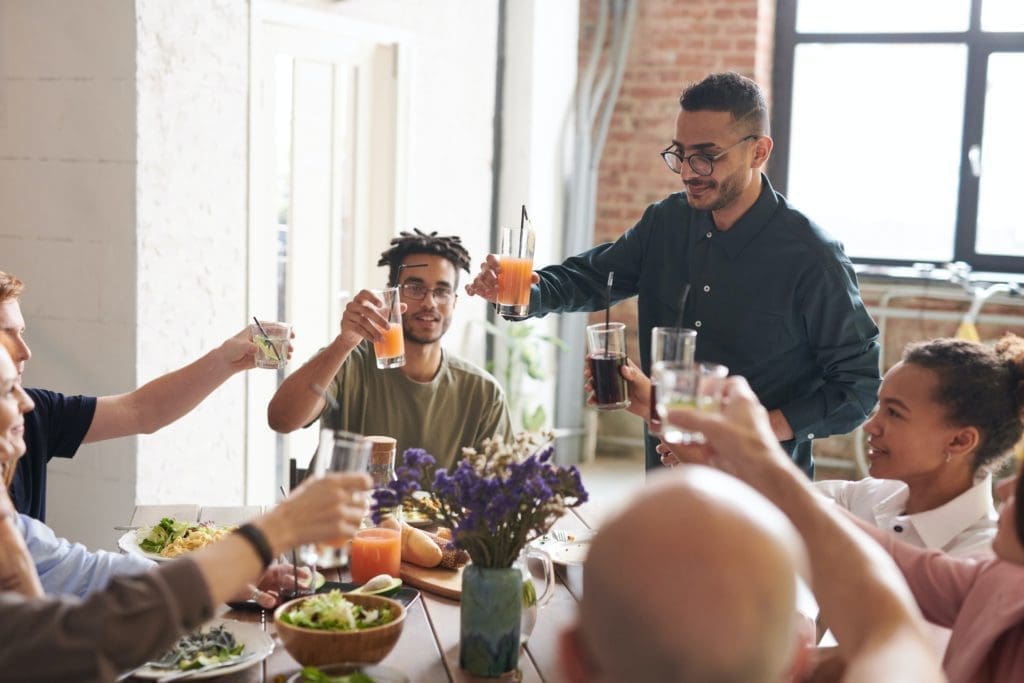Going “Home” for the Holidays

For some of us, including me, the phrase “going home for the holidays” invites anxiety, dread, and avoidance. Every year I struggle to decide what to do for Thanksgiving. The “holiday” has a lot of difficult subjects wrapped up in it.
This is especially true for many queer and trans people, Indigenous Americans, and sometimes other BIPOC people.
For those mentioned and anyone with a critical awareness of oppression, it reminds them of the active legacy of colonialism and Indigenous genocide. A Change.org petition suggests we change the name Thanksgiving to Indigenous People’s Remembrance Day.
As many queer people do, I’ve created my own chosen family and community with whom I often spend holidays. However, not everyone wants to replace Thanksgiving in my household of chosen family members. Some family members prefer not to recognize it at all. In 2020 I lost a family member the day before Thanksgiving. This is why some form of recognition of the day feels important to me because it is so closely connected to the loss of my family member.
My Healing Journey
In my healing journey, I’ve focused on transforming once-traumatic elements into beneficial and joyful ones.
Another reason I continue to seek meaningful experiences on Thanksgiving is that it was often a moment of profound disconnection. For me, the essence of the holiday of “Thanksgiving” is connecting with those we love and going home. Some of us have no place to “go home to” at all. If we do have a place to go, that place does not feel like a place of belonging.
The meaning of home and family often gets reimagined creatively within the LGBTQ+ community. My definition of family is the people who I’m close to who takes care of me and who I take care of in a sustained way. Home is where people see me for who I am and can appreciate, recognize, and be mutually accountable for my feelings and needs.
Anxiety Around the Holidays
As a therapist, I’ve noticed that most people have some form of anxiety around holidays, and many do not feel at ease around their biological families. We are taught we are supposed to want to be with bio family at these times of heightened cultural meaning. Even folks who have close connections with primarily loving family members experience the stress of imperfect relationships.
If you are experiencing loneliness, disconnection, alienation, or sadness around the holidays, please know you are not alone in having those feelings. Sharing these feelings with your therapist may be helpful.
If you don’t have an individual therapist, now may be a good time to reach out for additional support. With Channuka, Kwanzaa, Christmas, and New Year on the horizon, it’s a good time to take stock of what support systems and networks you have in place. If you aren’t sure how to start building a support network, that is a great topic to speak to your therapist about as well.
Loud Inner Critics and Self-Doubt
Most clients I work with struggle with shame, lack a sense of belonging, and have feelings of unworthiness that are often tied to early life experiences. They frequently have extremely loud inner critics, and self-doubt and don’t feel deserving of care.
Internal Family Systems (IFS) is a completely non-pathologizing modality that can help people understand and resolve inner conflicts. I use IFS to help my clients build new relationships with unwanted parts of themselves. With support, they can unburden the extreme feelings which often arise from emotional or physical neglect or abuse in their families of origin. It is also a powerful way of relieving the suffering tied to past events and can be a good alternative or adjunct to Eye Movement Desensitization and Reprocessing (EMDR).
If you are feeling alone, unstable, or in need of additional support this holiday season, please do not hesitate to reach out to those around you or professionals if needed.
Jenny Sandler, LCSW, is a Staff Therapist in our University City office and also provides online therapy. To set up an appointment, you can reach them at jsandler@councilforrelationships.org or 215-382-6680 ext. 7048.
